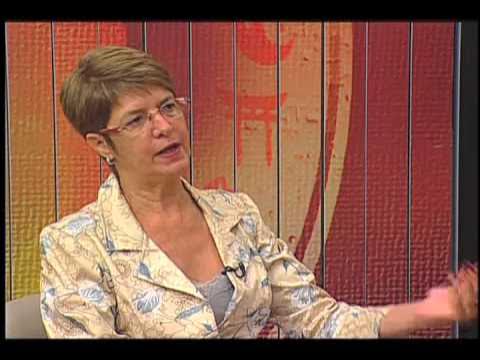St. Augustine (28 August) ~ The Patron Saint of Theologians
Summary
TLDRThis transcript explores the life, intellectual journey, and lasting influence of Saint Augustine. Born in 354 in North Africa, Augustine initially led a life of excess, influenced by his pagan father, but later sought truth, delving into philosophy and rhetoric. His studies of Plato helped him embrace Christianity, ultimately converting under the guidance of Saint Ambrose. Augustine's teachings on original sin, free will, and the nature of God became foundational for Christian theology. His famous works like 'Confessions' and 'City of God' still shape Western philosophy and theology today, showing how faith and reason intertwine.
Takeaways
- 📜 Saint Augustine is a foundational figure not only in church history but also in Western philosophy, influencing many later philosophers.
- 🏛️ Augustine's study of Plato helped him understand the Catholic faith, as Plato's ideas aligned with natural law and prepared him for Christianity.
- 🛤️ Born in 354 in Tagaste (North Africa) to a pagan father and Christian mother, Augustine initially led a life of excess, influenced by his father's bad example.
- 🧠 Augustine excelled in intellectual pursuits, particularly rhetoric, and was initially drawn to Manichaeism before rejecting it for its contradictions.
- 📖 His conversion was heavily influenced by Saint Ambrose of Milan and the prayers of his mother, Saint Monica, who followed him to Milan.
- 🌟 Augustine struggled with personal sins, especially lust, and famously prayed for chastity, saying, 'Lord give me chastity, but not yet.'
- 🙏 Augustine was eventually baptized at the age of 33 by Ambrose, marking his full conversion to Christianity.
- 📚 He wrote influential works such as 'Confessions,' which discussed his conversion and deep philosophical and theological insights.
- 🏙️ In 'The City of God,' Augustine laid the foundations for Catholic social doctrine, contrasting the City of God with the City of Man.
- 💬 Augustine is known for famous quotes like 'Our hearts are restless until they rest in you' and 'There is no saint without a past, no sinner without a future.'
Q & A
Who was Saint Augustine and why is he considered a foundational figure in philosophy and theology?
-Saint Augustine was a significant philosopher and theologian whose ideas formed the foundation of Western philosophy and Catholic theology. He is renowned for his contributions to understanding original sin, free will, and the problem of evil, which deeply influenced later philosophers and the Church.
What role did Augustine's early life play in shaping his later spiritual and intellectual journey?
-Augustine's early life, marked by pagan beliefs and sinful behavior, played a key role in his eventual conversion to Christianity. His intellectual pursuits, combined with a search for truth, led him through various philosophies and heresies before embracing Catholicism.
How did Plato's philosophy influence Augustine's understanding of Christianity?
-Plato's philosophy helped Augustine understand foundational concepts about truth and reality, which he later used to accept Christian theology. He credited Plato's ideas for preparing him to embrace Catholic teachings.
What was the heresy of Manichaeism, and why did Augustine eventually reject it?
-Manichaeism was a dualistic belief system that Augustine initially embraced. He later rejected it because he found it self-contradictory and incompatible with his search for truth, which led him toward Christianity.
What role did Saint Monica, Augustine's mother, play in his conversion?
-Saint Monica, Augustine's mother, played a significant role in his conversion. Her persistent prayers and sorrow over his sinful life were instrumental in his eventual acceptance of Christianity, as famously foretold by Saint Ambrose.
How did Augustine’s encounter with Saint Ambrose influence his conversion?
-Saint Ambrose, the bishop of Milan, impressed Augustine with his intellect and eloquence. Their interactions deepened Augustine's understanding of Christianity, leading to his eventual baptism and conversion.
What was the significance of Augustine’s famous prayer, 'Lord, give me chastity, but not yet'?
-This prayer reflects Augustine's internal struggle with sin, particularly lust. It shows his desire for holiness while also expressing the difficulty of giving up his sinful ways, a key aspect of his journey toward conversion.
What impact did Augustine’s study of Cicero and other pagan works have on his intellectual development?
-Augustine's study of Cicero and other pagan works sparked his desire to seek truth. Although initially inspired by pagan philosophy, these studies ultimately fueled his quest for deeper, spiritual truths that led him to Christianity.
What key ideas did Augustine contribute to Christian theology that are still relevant today?
-Augustine contributed foundational ideas such as original sin, the nature of free will, the problem of evil, and the necessity of grace. These concepts remain central to Christian theology and the Catholic Church's teachings.
How did Augustine’s personal experiences with sin and conversion shape his theological insights?
-Augustine’s personal struggles with sin, particularly his youthful excesses and eventual conversion, gave him deep insights into human nature, free will, and God's grace. His life experience enriched his theological works, making them relatable and profound.
Outlines

このセクションは有料ユーザー限定です。 アクセスするには、アップグレードをお願いします。
今すぐアップグレードMindmap

このセクションは有料ユーザー限定です。 アクセスするには、アップグレードをお願いします。
今すぐアップグレードKeywords

このセクションは有料ユーザー限定です。 アクセスするには、アップグレードをお願いします。
今すぐアップグレードHighlights

このセクションは有料ユーザー限定です。 アクセスするには、アップグレードをお願いします。
今すぐアップグレードTranscripts

このセクションは有料ユーザー限定です。 アクセスするには、アップグレードをお願いします。
今すぐアップグレード関連動画をさらに表示

História da vida de Santo Agostinho (354 - 430) - Bispo e Doutor da Igreja

De Pecador a Santo: A Conversão e o Legado de Santo Agostinho

Religare - Conhecimento e Religião com Silvia Maria de Contaldo - Bloco 1.mp4

Biografias Universales : San Agustín

Pengenalan Tokoh Sufi Muda: Suhrawardi al-Maqtul

QUEM FOI SANTO AGOSTINHO?
5.0 / 5 (0 votes)
